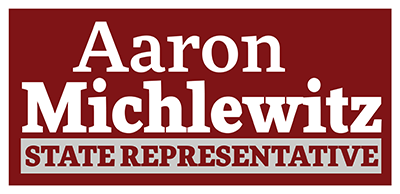Gov. Charlie Baker on Wednesday signed into law a $43.32 billion state budget for fiscal 2020, without vetoing any spending.
“The budget is balanced,” Baker said.
The budget represents an increase in spending of 3.3% over fiscal 2019.
In past years, Baker has vetoed large numbers of earmarks. He said he chose not to this year because he believes the budget is balanced and in “pretty good shape financially.”
The final total is slightly larger than what was initially reported after the Legislature passed the budget because of minor differences in how each branch accounts for the money.
Baker signed the budget 31 days after the start of the new fiscal year and on the last day of formal legislative sessions before the Legislature takes its August break.
Baker vetoed some policy language and sent some policy language back to the Legislature with amendments. He he said he hopes lawmakers will take up at least two of the changes today.
One relates to the details of a time-sensitive wind energy procurement. The other would clarify that the state tax on restaurant meals would not be lifted during the annual sales tax holiday on Aug. 17-18. Although this has traditionally been the case, the new law that made the sales tax holiday permanent left the exemption out.
Key lawmakers in the Massachusetts House said they intend to take both of those amendments up in the House’s formal session on Wednesday.
The only tax change included in the budget is a requirement that online marketplaces, like eBay and Etsy, collect sales tax from sales to Massachusetts customers. The Legislature rejected new taxes that Baker had initially proposed on opioid manufacturers and vaping products.
The budget assumes the income tax rate will go down to 5% on Jan. 1, 2020, which it is set to do if certain economic triggers are met.
Local education aid will increase by nearly $270 million, to a total of $5.2 billion, although lawmakers still have not released their comprehensive plan for overhauling the education funding formula. There are also planned increases compared to last year to pay for regional school transportation, special education and charter school reimbursements.
MassHealth — which has been a major budget cost driver in the past — will increase its spending by 3.9%, but by only 0.4% in state money after accounting for federal reimbursements.
Some new programs included in the budget are $4 million to expand accessible emergency shelter units for people with disabilities, a new fire prevention training academy in Bridgewater and a new $10 million fund to improve mental health care, through initiatives like offering loan forgiveness to mental health professionals.
Also included in the budget is a new initiative that will let MassHealth negotiate drug prices. The bill establishes a process for the Health Policy Commission to get involved in determining whether a proposed drug price for a high cost drug is reasonable.
The final language is a version of what Baker had proposed, which had faced significant pushback from the drug manufacturing industry. The governor said although there were changes made in the final version to respond to industry complaints, “We all respect where the Legislature landed.”
The budget also includes an initiative Baker had proposed to expand the Medicare Savings Program to help 40,000 more low-income seniors pay for their drugs.
The Department of Public Health will get $172 million to address substance use, including $5 million for harm reduction, which includes things like syringe exchange programs.
There will be $1.1 billion for the Department of Children and Families, an increase of nearly $200 million since fiscal 2015 to fix the troubled department.
In the wake of the Merrimack Valley natural gas explosions, the Department of Public Utilities’ pipeline safety division will get a $5 million budget increase for testing, investigations and oversight.
Regional Transit Authorities will get $90.5 million, a $2.5 million increase over last year.
UMass will get $558 million, which university officials have said is not enough to stave off a tuition and fee increase.
Baker invited members of his black and Latino advisory commissions to join him at the signing ceremony. The recommendations of those commissions, primarily related to improving education and workforce development programs for the black and Latino communities, received $20.3 million in the budget.
House and Senate budget negotiators, in crafting their final agreement, raised revenue assumptions by $600 million. The final budget counts on taking in $30.1 billion in tax revenue, growth of 1.4% over fiscal 2019.
Baker said he agrees with this estimate. While revenues increased by closer to 8% this past year, Baker said a lot of that was due to a one-time flood of corporate money due to federal tax reform, which caused companies to bring back money from overseas, and to capital gains tax revenue, which tend to be volatile from year to year.
House Speaker Robert DeLeo, D-Winthrop, a former Ways and Means Committee chairman, said he does not remember another instance when a governor signed a budget without vetoing any spending.
“I think quite frankly that action says a lot in terms of the type of budget that we put forward,” DeLeo said.
Paul Craney, a spokesman for the conservative Massachusetts Fiscal Alliance criticized Baker, calling it “a failure in our democratic process when the branch of government charged with reigning in spending does not exercise its duty to use the line item veto.”
**This Article was written by Shia Schoenberg and appeared on MassLive on July 31, 2019
